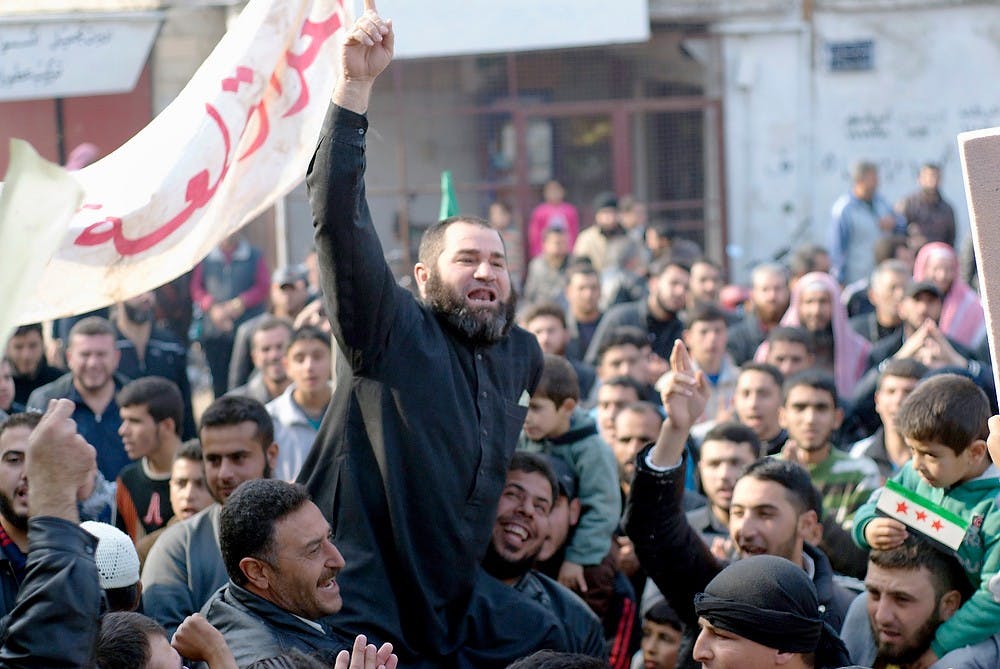The destruction of the Syrian revolution has hit home for Anas Attal — literally.
The international relations senior’s former house in Homs, Syria, was bombed on Sunday morning.
Attal received a call around 10 a.m. from his cousin in Pennsylvania, 5 p.m. Syria time, and right away, his heart dropped — he knew something was wrong.
His neighborhood was pounded with explosions, leaving the streets in rubble, families displaced and civilians dead.
This is the fear and reality Syrians have been living with every day for nearly two years, Attal said.
The conflict, which is a part of the Arab Spring, is ongoing and has been destructive to the Middle Eastern nation and its people.
According to The New York Times, in spring 2011, Syrian President Bashar al-Assad tightened rules within cities by sending military forces to combat protests, spurring unrest amongst revolutionists.
Nearly 40,000 people are thought to have died as a result of the conflict as of November 2012, according to The New York Times.
Although no one in Attal’s family was living in the home when the neighborhood was attacked and no one in his family was hurt, the daughter of a refugee family residing in the home was wounded when a piece of shattered glass struck her in the head, Attal said.
The girl was brought to the hospital and now is recovering, he said.
Attal had friends and neighbors who were killed during the attack, which he believes was an act of the al-Assad regime, he said.
“I do feel bad, get goose bumps and cry, but I have stopped seeing pictures and videos of the events for over a year and a half, and that is because I get really, really bad nightmares,” Attal said in an email. “I see myself protesting on the streets of Syria and getting shot or killed, and the next day someone dies the same exact way I did.”
What began as a revolution has escalated to a civil war with a resolution unseen and unsure, said Russell Lucas, co-director of the Global Studies in the Arts and Humanities program at MSU.
“This is a revolution against its own government,” Lucas said. He said international powers have not stepped in to help mediate the conflict.
For some Syrian families, the violence has been severe enough to force them to flee the country.
Mohnnad Allaf, 17, is a recent high school graduate from Syria who was subject to such violence.
Allaf was forced to flee the country after his family ran into some revolutionist backlash from the al-Assad regime. Attal translated for Allaf during the interview.
Allaf said his family now is scattered in different countries, and he is living on his own in East Lansing after having been taken in by one of the Islamic Society of Greater Lansing’s community leaders.
Paulette Granberry Russell, director of the Office for Inclusion and Intercultural Initiatives, said MSU will make accommodations for any distressed student displaced from his or her home.
Support student media!
Please consider donating to The State News and help fund the future of journalism.
Discussion
Share and discuss “Syrian conflict affects students in U.S.” on social media.







